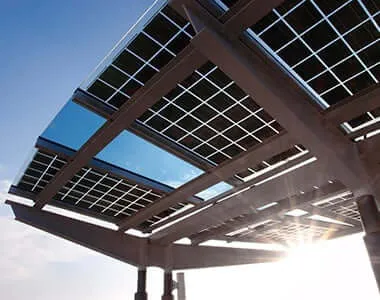Solar Installation Services | Sustainable Energy Solutions
Harnessing the Power of the Sun The Rise of Solar Installation
In recent years, solar energy has emerged as one of the most promising renewable energy sources, driving a significant shift towards sustainable energy solutions worldwide. Solar installation, in particular, has seen a remarkable rise, transforming not only individual homes but also entire communities and industries. As awareness of climate change and environmental issues grows, the adoption of solar power has become more urgent and feasible.
Solar panels convert sunlight into electricity through photovoltaic cells, which contain semiconducting materials. When sunlight hits these cells, it excites electrons, generating a flow of electricity. This process is clean, requires minimal maintenance, and significantly reduces carbon footprints, making it an attractive option for homeowners and businesses alike.
One of the most compelling reasons for the rising popularity of solar installation is the substantial reduction in costs over the past decade. Advances in technology, increased manufacturing efficiency, and government incentives have led to a steep decline in the price of solar panels. In many regions, solar energy has become cost-competitive with traditional fossil fuels, offering an economically viable alternative for energy production. Homeowners often find that the long-term savings on electricity bills far outweigh the initial investment.
Moreover, many governments worldwide have implemented policies and incentives to encourage solar adoption. These can include tax credits, rebates, and grants aimed at reducing the financial burden of solar installation. In addition, net metering policies allow homeowners to sell excess electricity generated back to the grid, further incentivizing solar usage. As a result, cities and states are witnessing a surge in residential solar installations, contributing to a greener, more sustainable future.
solar installation

Beyond the financial aspects, the environmental benefits of solar installation are significant. Solar power produces no greenhouse gas emissions during operation, helping to mitigate the impacts of climate change. By transitioning to solar energy, individuals contribute to a larger global movement towards reducing reliance on fossil fuels and promoting cleaner energy sources. This shift not only benefits the planet but also enhances energy security by decreasing dependence on imported fuels.
Community solar projects have also emerged as a beneficial solution for those who cannot install solar panels on their own properties. These initiatives allow multiple households or businesses to share the benefits of solar energy, often referred to as community solar farms. Participants can invest in a portion of the solar installation, receiving credits on their utility bills based on the energy produced. This model democratizes solar access, enabling more people to partake in the solar energy revolution.
As we look toward the future, the potential for solar installation continues to grow. With ongoing advancements in technology, such as improved battery storage systems and smart grid integration, solar energy can play a crucial role in our transition to a sustainable energy landscape. The combination of lowering costs, supportive policies, and a strong desire for environmental stewardship is propelling solar installation into the spotlight.
In conclusion, the rise of solar installation represents a pivotal moment in the fight against climate change. By embracing solar energy, we can not only reduce our carbon footprints but also pave the way for a cleaner, more sustainable future. As individuals and communities harness the power of the sun, we move closer to a world fueled by renewable energy sources, illustrating the transformative potential of solar power.
-
Unlocking Energy Freedom with the Off Grid Solar InverterNewsJun.06,2025
-
Unlock More Solar Power with a High-Efficiency Bifacial Solar PanelNewsJun.06,2025
-
Power Your Future with High-Efficiency Monocrystalline Solar PanelsNewsJun.06,2025
-
Next-Gen Solar Power Starts with Micro Solar InvertersNewsJun.06,2025
-
Harnessing Peak Efficiency with the On Grid Solar InverterNewsJun.06,2025
-
Discover Unmatched Efficiency with the Latest String Solar InverterNewsJun.06,2025







